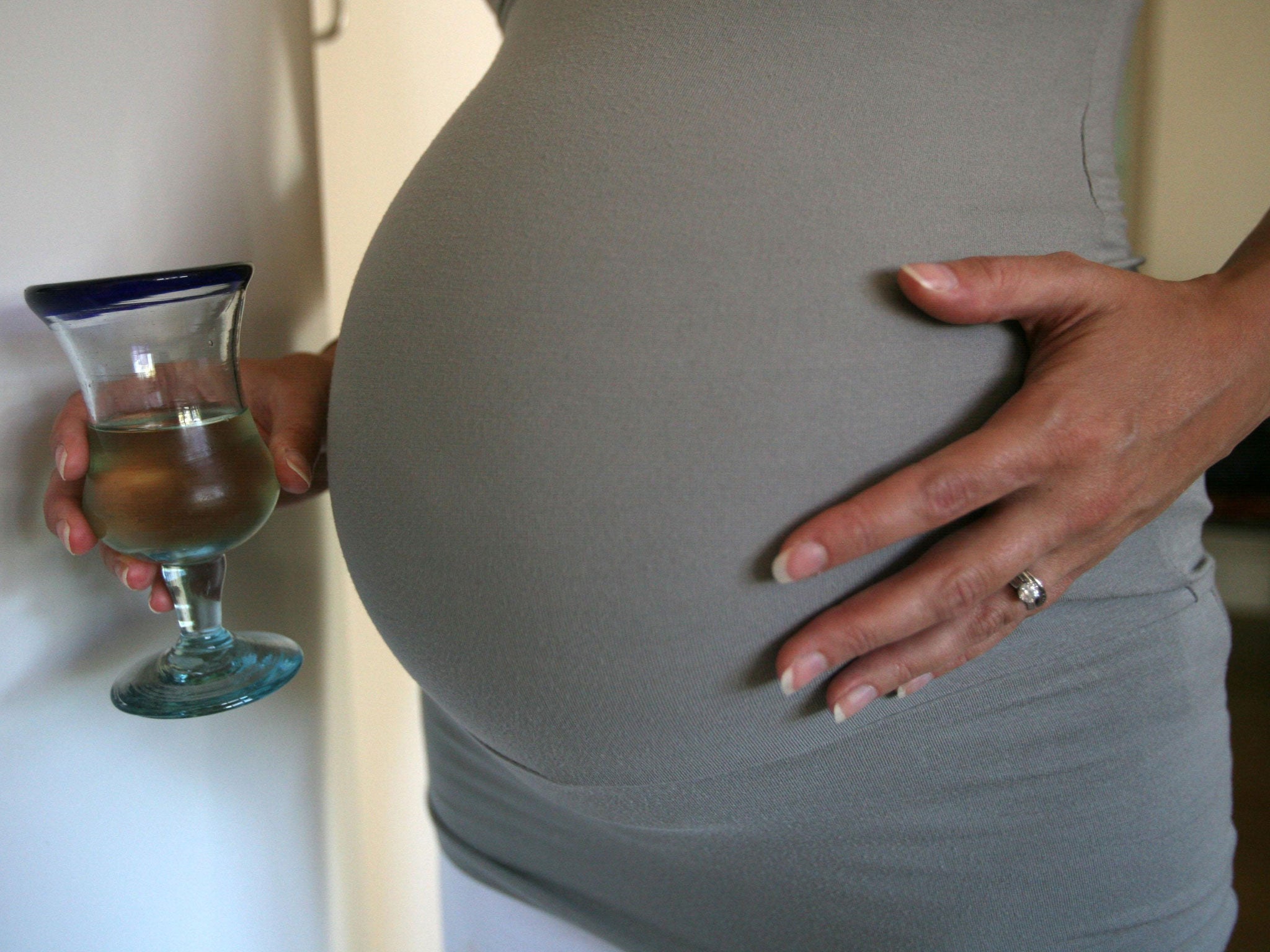Drinking alcohol early in pregnancy, even in small amounts, increases chances of harming your baby, study finds

Your support helps us to tell the story
From reproductive rights to climate change to Big Tech, The Independent is on the ground when the story is developing. Whether it's investigating the financials of Elon Musk's pro-Trump PAC or producing our latest documentary, 'The A Word', which shines a light on the American women fighting for reproductive rights, we know how important it is to parse out the facts from the messaging.
At such a critical moment in US history, we need reporters on the ground. Your donation allows us to keep sending journalists to speak to both sides of the story.
The Independent is trusted by Americans across the entire political spectrum. And unlike many other quality news outlets, we choose not to lock Americans out of our reporting and analysis with paywalls. We believe quality journalism should be available to everyone, paid for by those who can afford it.
Your support makes all the difference.Women who drink less than the officially recommended intake of alcohol during the first weeks of pregnancy may still be at higher risk of having smaller babies or of giving birth prematurely compared to women who do not drink alcohol at all, a study has found.
The Department of Health recommends that women should not drink during pregnancy but accepts that some women do and so has recommended that in such cases they drink no more than one or two units of alcohol – equivalent to a small glass of wine – and no more than once or twice a week.
However, the first study to follow a group of British women both before and during pregnancy has found even such small amounts of alcohol each week can have a significant effect on the birth-weight of babies and whether they are born prematurely, which are both linked with poor health later in life.
“We found that the first trimester [12 weeks] to be the period most sensitive to the effect of alcohol on the developing foetus,” the researchers said in a study involved nearly 1,300 pregnant women, published in the British Medical Journal.
“Women adhering to guidelines in this period were still at increased risk of adverse birth outcomes. Our findings suggest that women should be advised to abstain from alcohol when planning to conceive and throughout pregnancy,” the researchers said.
The researchers, led by Professor Janet Cade of Leeds University, asked the women to complete a questionnaire of their drinking habits for four time periods: four weeks before conception and for each subsequent three-months or trimesters of the pregnancy.
Alcohol consumption was significantly higher before conception and in the first three months of pregnancy than in the subsequent two trimesters. The weekly intake of alcohol averaged 11 units initially, falling to four units and then two units as the pregnancy advanced.
Just over half, 53 per cent, of the women said they drank more than the maximum recommended limit of two units per week during the first trimester, and almost 40 per cent said they drank more than 10 units a week in the four weeks leading up to conception when they may not have been aware of becoming pregnant as about 40 per cent of pregnancies are unplanned.
Those who drank more than two units a week were more likely to be older, educated to degree level, of white ethnicity and more likely to live in affluent areas of the city, the researchers found.
The study also found an association between the 13 per cent of the babies born to this group who were underweight, the 4.4 per cent who were smaller than expected and the 4.3 per cent of babies who were born prematurely.
Professor Cade said that women who drank more than the recommended two weekly units were twice as likely to give birth to an unexpectedly small or premature baby than women who abstained completely, but she emphasised that the link did not prove cause and effect.
“The advice is, if you are thinking of getting pregnant, keep off the alcohol, and if you find yourself pregnant and have been drinking alcohol, don’t worry as the effect will still be small,” Professor Cade said.
Join our commenting forum
Join thought-provoking conversations, follow other Independent readers and see their replies
Comments